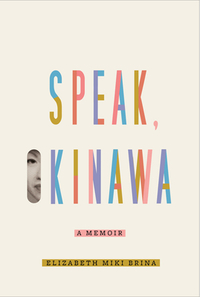Take a photo of a barcode or cover
emotional
hopeful
reflective
sad
medium-paced
4.5 stars - a heartstirring, raw, impossibly vibrant memoir of brina’s life as the daughter of an american soldier and his korean war bride. brina writes with candidness and deep emotion about her complicated relationship with her parents, especially her mother, and her evolving view of her asian identity more broadly. there is something terribly moving about the chapters of this book where brina recounts how she treated her mother as a child, the regret she feels for never understanding what it must have taken for her mother to leave her home in okinawa and marry a man she hardly knew. prescient too is her examination of her father’s political views and how little they resemble the version of him she remembers protecting her as a child. my one gripe is with the chapters where she goes into okinawa’s history of occupation — it feels like too ambitious of a project for such a short book, and i question the use of “we” as a narrative device. if they were part of conversations she had with her relatives — even recognizing the language barrier — they would have felt much more personal and true to form.
emotional
informative
reflective
medium-paced
challenging
emotional
inspiring
reflective
sad
medium-paced
Heartbreaking and inspiring. It’s a story about generational trauma and family relationships told by a millennial woman raised in America. The storytelling is raw and real. My takeaways: an important history lesson (and desire to learn/do more) about the US military, an exploration of what defines love, and a good reminder that everyone has a story to tell.
Graphic: Xenophobia, War
Moderate: Child death, Sexual violence, Suicide, Vomit
challenging
dark
emotional
informative
reflective
medium-paced
challenging
emotional
hopeful
reflective
medium-paced
challenging
dark
emotional
informative
reflective
sad
medium-paced
emotional
informative
reflective
tense
medium-paced
Candid recollection by the author about growing up in a bi-racial family (White conservative father and Okinawan mother). Because of the ambiguous cultural and economic backgrounds, plus her mother being completely out of place in the United States - Brina compensates with extreme behavior. Her behavior aggravates her mother's already unhappy situation. She does not come to resolution to her situation until she is much older and makes strides to reclaim her lost Okinawan roots. There is a very quick transition in the book to Brina having resolve - a lot of the internal resolution is not included in the story. Good historical background about Okinawa (with respect to history with Japan and the US - a lot of which is whitewashed by US historians) and to the story and gives a better frame of reference about Okinawa and the constant struggles with US presence.
Felt very disorganized, and the author was projecting her parents/family's circumstance on the entire Okinawan population in parts. For someone who doesn't speak Japanese/Okinawan the authority she spoke about current issues felt off.





